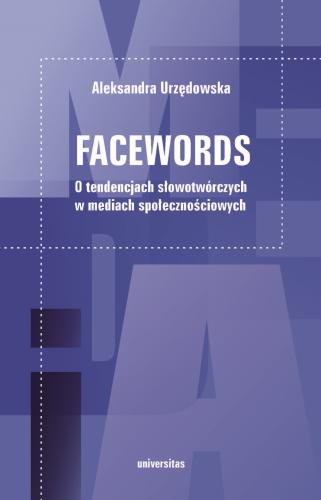Facewords. Word formation trends in social media
Keywords:
Facebook, social media, fanpage, word formation trends, the language of the InternetSynopsis
This work entitled Facewords. Word formation trends in social media adds to the body of work focussing on the latest trends in the Polish language. The primary goal of this research is to observe changes in word formation in the language of contemporary social media. The raw ata is derived from excerpts from online comments posted on Facebook in fanpages of popular socio-political press titles: Gazeta Wyborcza, Fronda, Newsweek and Wprost. The collected lexical material comes from the years 2013–2018. Word formations within two parts of speech were analysed: the noun and the adjective. The set of discussed items includes both existing derivatives, well embedded in the lexical resource of the general language, as well as new items which are yet to be recorded in general Polish dictionaries. The comparison of these two groups of derivatives allows us to answer the question of what kind of word-formation techniques are most often applied in the language of the Internet. The main part of the work is a chapter devoted to the analysis of the derivatives of noun and adjective word-formation. Pronounced lexemes are characterized in terms of the word-formation techniques used to create tchem (prefixing, suffixing, negative derivation, paradigmatic, alternating). Simple derivatives and assemblies, adhesions and contamination were discussed. The analysed lexemes were assigned to the appropriate word formation categories. The description includes a broadly understood social and communication context. The summary highlights the most important trends in word-formation of the language of contemporary electronic media.



